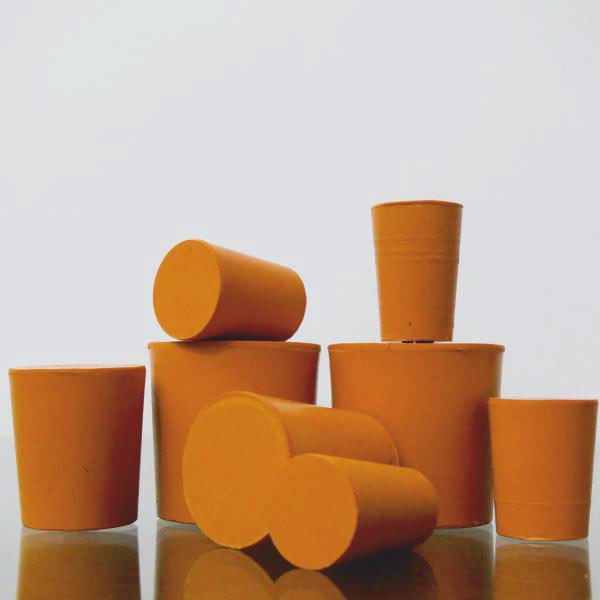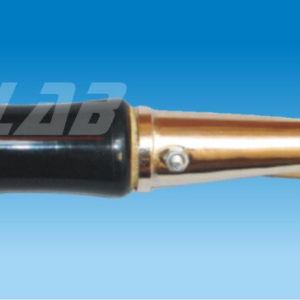Description
| Catalog No. | Cork Number | Bottom | Top | Height |
| (in MM) | (in MM) | (in MM) | ||
| ±.2mm | ±.2mm | ±.2mm | ||
| 19815/1 | 5 | 5 | 7 | 16 |
| 19815/2 | 8 | 8 | 10.5 | 20 |
| 19815/3 | 9 | 9 | 11.5 | 20 |
| 19815/4 | 10 | 10 | 12.5 | 20 |
| 19815/5 | 11 | 11 | 14 | 24 |
| 19815/6 | 13 | 13 | 16 | 24 |
| 19815/7 | 15 | 15 | 18 | 24 |
| 19815/8 | 17 | 17 | 20.5 | 26 |
| 19815/9 | 18 | 18 | 21 | 26 |
| 19815/10 | 19 | 19 | 22.5 | 28 |
| 19815/11 | 21 | 21 | 24.5 | 28 |
| 19815/12 | 23 | 23 | 26.5 | 28 |
| 19815/13 | 25 | 25 | 28.5 | 28 |
| 19815/14 | 27 | 27 | 31 | 32 |
| 19815/15 | 29 | 29 | 31 | 32 |
| 19815/16 | 31 | 31 | 36 | 35 |
| 19815/17 | 33 | 33 | 38.5 | 38.5 |
| 19815/18 | 35 | 35 | 45.5 | 36.5 |
| 19815/19 | 38 | 38 | 42.5 | 40.5 |
| 19815/20 | 40 | 40 | 49.5 | 40.5 |
Natural rubber solid corks are small tapered plugs made from natural rubber that is used to seal laboratory glassware, such as test tubes, flasks, and bottles. They are designed to fit snugly into the opening of the glassware, creating a tight seal that prevents the entry or escape of gases or liquids.
Natural rubber is a flexible and durable material that can withstand repeated use and exposure to various chemicals and temperatures. However, it is not recommended for use with some solvents or strong acids.






